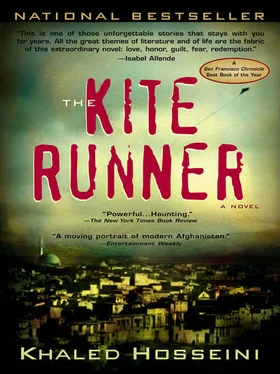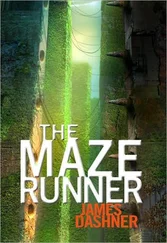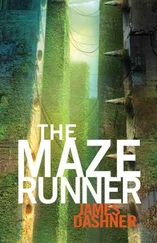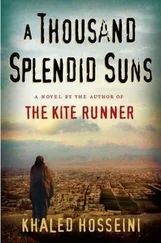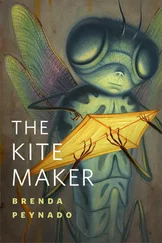We sat on a bench in one of the picnic areas, in the shade of a gum tree. It was a warm day, the sun perched high in a topaz blue sky. On benches nearby, families snacked on samosa s and pakora s. Somewhere, a radio played a Hindi song I thought I remembered from an old movie, maybe Pakeeza . Kids, many of them Sohrab’s age, chased soccer balls, giggling, yelling. I thought about the orphanage in Karteh-Seh, thought about the rat that had scurried between my feet in Zaman’s office. My chest tightened with a surge of unexpected anger at the way my countrymen were destroying their own land.
“What?” Sohrab asked. I forced a smile and told him it wasn’t important.
We unrolled one of the hotel’s bathroom towels on the picnic table and played panjpar on it. It felt good being there, with my half brother’s son, playing cards, the warmth of the sun patting the back of my neck. The song ended and another one started, one I didn’t recognize.
“Look,” Sohrab said. He was pointing to the sky with his cards. I looked up, saw a hawk circling in the broad seamless sky. “Didn’t know there were hawks in Islamabad,” I said.
“Me neither,” he said, his eyes tracing the bird’s circular flight. “Do they have them where you live?”
“San Francisco? I guess so. I can’t say I’ve seen too many, though.”
“Oh,” he said. I was hoping he’d ask more, but he dealt another hand and asked if we could eat. I opened the paper bag and gave him his meatball sandwich. My lunch consisted of yet another cup of blended bananas and oranges – I’d rented Mrs. Fayyaz’s blender for the week. I sucked through the straw and my mouth filled with the sweet, blended fruit. Some of it dripped from the corner of my lips. Sohrab handed me a napkin and watched me dab at my lips. I smiled and he smiled back.
“Your father and I were brothers,” I said. It just came out. I had wanted to tell him the night we had sat by the mosque, but I hadn’t. But he had a right to know; I didn’t want to hide anything anymore. “Half brothers, really. We had the same father.”
Sohrab stopped chewing. Put the sandwich down. “Father never said he had a brother.”
“That’s because he didn’t know.”
“Why didn’t he know?”
“No one told him,” I said. “No one told me either. I just found out recently.”
Sohrab blinked. Like he was looking at me, really looking at me, for the very first time. “But why did people hide it from Father and you?”
“You know, I asked myself that same question the other day. And there’s an answer, but not a good one. Let’s just say they didn’t tell us because your father and I… we weren’t supposed to be brothers.”
“Because he was a Hazara?”
I willed my eyes to stay on him. “Yes.”
“Did your father,” he began, eyeing his food, “did your father love you and my father equally?”
I thought of a long ago day at Ghargha Lake, when Baba had allowed himself to pat Hassan on the back when Hassan’s stone had outskipped mine. I pictured Baba in the hospital room, beaming as they removed the bandages from Hassan’s lips. “I think he loved us equally but differently.”
“Was he ashamed of my father?”
“No,” I said. “I think he was ashamed of himself.”
He picked up his sandwich and nibbled at it silently.
WE LEFT LATE THAT AFTERNOON, tired from the heat, but tired in a pleasant way. All the way back, I felt Sohrab watching me. I had the driver pull over at a store that sold calling cards. I gave him the money and a tip for running in and buying me one.
That night, we were lying on our beds, watching a talk show on TV. Two clerics with pepper gray long beards and white turbans were taking calls from the faithful all over the world. One caller from Finland, a guy named Ayub, asked if his teenaged son could go to hell for wearing his baggy pants so low the seam of his underwear showed.
“I saw a picture of San Francisco once,” Sohrab said.
“Really?”
“There was a red bridge and a building with a pointy top.”
“You should see the streets,” I said.
“What about them?” He was looking at me now. On the TV screen, the two mullahs were consulting each other.
“They’re so steep, when you drive up all you see is the hood of your car and the sky,” I said.
“It sounds scary,” he said. He rolled to his side, facing me, his back to the TV.
“It is the first few times,” I said. “But you get used to it.”
“Does it snow there?”
“No, but we get a lot of fog. You know that red bridge you saw?”
“Yes.”
“Sometimes the fog is so thick in the morning, all you see is the tip of the two towers poking through.”
There was wonder in his smile. “Oh.”
“Sohrab?”
“Yes.”
“Have you given any thought to what I asked you before?”
His smiled faded. He rolled to his back. Laced his hands under his head. The mullahs decided that Ayub’s son would go to hell after all for wearing his pants the way he did. They claimed it was in the Haddith . “I’ve thought about it,” Sohrab said.
“And?”
“It scares me.”
“I know it’s a little scary,” I said, grabbing onto that loose thread of hope. “But you’ll learn English so fast and you’ll get used to-”
“That’s not what I mean. That scares me too, but…”
“But what?”
He rolled toward me again. Drew his knees up. “What if you get tired of me? What if your wife doesn’t like me?”
I struggled out of bed and crossed the space between us. I sat beside him. “I won’t ever get tired of you, Sohrab,” I said. “Not ever. That’s a promise. You’re my nephew, remember? And Soraya jan, she’s a very kind woman. Trust me, she’s going to love you. I promise that too.” I chanced something. Reached down and took his hand. He tightened up a little but let me hold it.
“I don’t want to go to another orphanage,” he said.
“I won’t ever let that happen. I promise you that.” I cupped his hand in both of mine. “Come home with me.”
His tears were soaking the pillow. He didn’t say anything for a long time. Then his hand squeezed mine back. And he nodded. He nodded.
THE CONNECTION WENT THROUGH on the fourth try. The phone rang three times before she picked it up. “Hello?” It was 7:30 in the evening in Islamabad, roughly about the same time in the morning in California. That meant Soraya had been up for an hour, getting ready for school.
“It’s me,” I said. I was sitting on my bed, watching Sohrab sleep.
“Amir!” she almost screamed. “Are you okay? Where are you?”
“I’m in Pakistan.”
“Why didn’t you call earlier? I’ve been sick with tashweesh ! My mother’s praying and doing nazr every day.”
“I’m sorry I didn’t call. I’m fine now.” I had told her I’d be away a week, two at the most. I’d been gone for nearly a month. I smiled. “And tell Khala Jamila to stop killing sheep.”
“What do you mean ‘fine now’? And what’s wrong with your voice?”
“Don’t worry about that for now. I’m fine. Really. Soraya, I have a story to tell you, a story I should have told you a long time ago, but first I need to tell you one thing.”
“What is it?” she said, her voice lower now, more cautious.
“I’m not coming home alone. I’m bringing a little boy with me.” I paused. “I want us to adopt him.”
“What?”
I checked my watch. “I have fifty-seven minutes left on this stupid calling card and I have so much to tell you. Sit somewhere.” I heard the legs of a chair dragged hurriedly across the wooden floor.
Читать дальше
